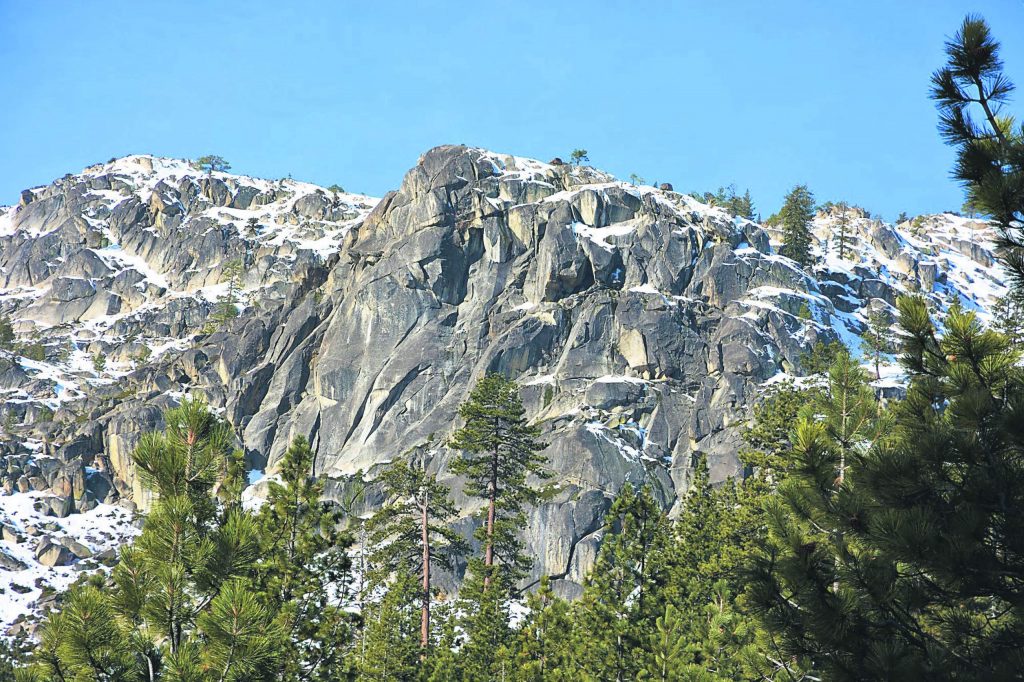
As reported in the Sierra Sun on April, 9 2020 by Justin Scacco.
As temperatures warm and snow melts from granite walls and crags, climbers are gearing up for another season at their favorite locations around the region.
Climbing coalitions from around the nation, however, are urging individuals to keep their gear packed away for now, sending the message to stay at home and out of the backcountry until the spread of COVID-19 is under control.
“We think the right thing to do at this point is to strongly discourage climbing,” said Gary Allan, executive director of the recently formed North Lake Tahoe Climber Coalition.
Popular climbing areas like those in Bishop, Joshua Tree National Park, and the Gunks in New York have all taken aggressive stances on climbing at this time, and in some cases, like at Yosemite National Park, are enforcing full closures.
“We don’t want to have to take the steps of closure, we would rather see voluntary compliance through education,” Allan said. “Lets think about others’ health first and not our own personal needs and desires.”
The coalition maintains several climbing areas around the region, including Black Wall on Donner Summit, which was purchased by the Truckee Land Trust several years ago. In the coming months, Allan said the coalition is planning on working to improve sites by maintaining trails and routes, while addressing such problems like graffiti, human waste, and litter. In the meantime, however, the board of 11 experienced climbers from around the area are urging users to stay off the region’s granite.
“The scientific community still doesn’t know how long the virus can stay on climbing holds, and it would be impossible to properly disinfect a route,” he said. “Please encourage your friends, climbing partners and colleagues to respect and abide by this request.”
Being in the backcountry at this time also brings about the potential for an accident, which could end up exposing dozens of rescue workers to the coronavirus, while also adding stress to an already burdened health system.
Other issues are also present, said Allan, such as the amount of time the virus might stay on gear like ropes and carabineers.
Along with the coalition asking individuals to stay out of the backcountry, officials from Tahoe National Forest are sending a similar message.
“We are asking folks now more than ever to be prepared, and recreate responsibly,” said Tahoe National Forest Public Affairs Officer Joe Flannery. “High risk activities … these can increase your chance of injury and distress and should be avoided.”
The North Lake Tahoe Climbers Coalition is a climbing advocacy and stewardship group of dedicated local climbers working toward nonprofit status while currently working under the fiscal sponsorship of the Truckee Donner Land Trust.
View this article as it was originally posted in the Sierra Sun newspaper.
